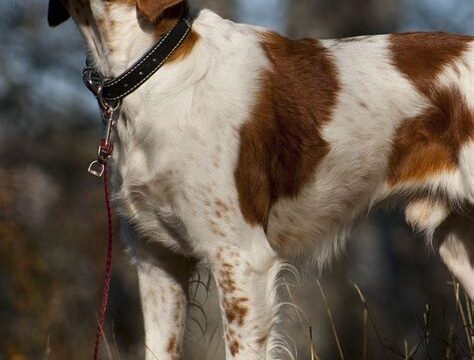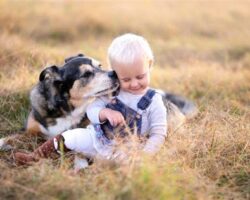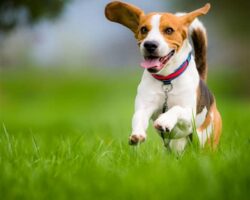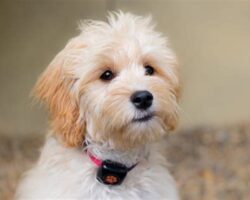Discover the top hunting dog characteristics, popular breeds for bird and big game hunting, training tips, health care, and choosing the right breed for your family.
Characteristics of Top Hunting Dogs
When it comes to choosing the right hunting dog breed, there are certain characteristics that are essential for a successful hunting companion. High energy levels are a must for hunting dogs, as they need to be able to keep up with the physical demands of long days in the field. Additionally, strong sense of smell and tracking ability are crucial traits for hunting dogs, as they are often used to track and locate game. These dogs also need to have a strong prey drive, as their natural instinct to chase and catch prey is a key component of their hunting ability.
Another important characteristic of top hunting dogs is a good temperament and trainability. Hunting dogs need to be able to work closely with their human companions, so they must be responsive to training and have a cooperative nature. This is essential for ensuring that they can follow commands and work effectively in the field. Additionally, physical stamina and endurance are important qualities for hunting dogs, as they often need to cover long distances and withstand challenging weather conditions during hunting expeditions.
Overall, top hunting dogs possess a unique combination of physical, mental, and behavioral characteristics that make them well-suited for the demands of hunting. Whether it’s their high energy levels, strong tracking abilities, or good temperament, these characteristics are essential for any hunting dog breed to excel in their role as a hunting companion.
Popular Breeds for Bird Hunting
Popular Breeds for Bird Hunting
When it comes to bird hunting, having the right breed of dog can make all the difference. Labrador Retrievers are a popular choice for bird hunting due to their intelligence, obedience, and ability to retrieve game from water. Their gentle temperament also makes them great companions for both hunting and family life.
English Springer Spaniels are another top choice for bird hunting. Their eager-to-please nature and strong hunting instincts make them excellent in the field. Their smaller size and agility allow them to navigate through dense cover, making them perfect for flushing out birds.
Finally, German Shorthaired Pointers are well-known for their hunting abilities, especially in bird hunting. These dogs are incredibly versatile, with a keen sense of smell, high energy levels, and an excellent pointing and retrieving ability. Their natural hunting instincts make them a top choice for avid bird hunters.
Best Breeds for Big Game Hunting
Best Breeds for Big Game Hunting
Big game hunting requires a special set of skills from a hunting dog. Not all breeds are suited for this demanding task, but there are some that excel in this type of hunting. These dogs are intelligent, strong, and have a keen sense of smell, making them ideal companions for big game hunters.
One of the top breeds for big game hunting is the German Shorthaired Pointer. This versatile breed is known for its endurance, agility, and ability to track and retrieve game in rugged terrain. Their athleticism and keen nose make them a great choice for hunters pursuing big game such as deer, elk, and bear.
Another excellent breed for big game hunting is the Labrador Retriever. Known for their intelligence and trainability, Labs are also strong and adaptable, making them well-suited for the challenges of big game hunting. With their friendly nature and willingness to please, Labs make great companions for hunters and are capable of retrieving large game from water or land.
Training Tips for Hunting Dogs
Training Tips for Hunting Dogs
Training hunting dogs is an essential part of preparing them for the outdoor adventures they will embark on. A well-trained hunting dog will not only be able to assist you in locating and retrieving game, but also ensure their own safety and follow commands without hesitation. The key to successful training lies in consistency, patience, and understanding the specific needs and instincts of the breed.
When training hunting dogs, it’s important to start at a young age to instill good habits and obedience. Introducing basic commands such as sit, stay, and come early on can form the foundation for more advanced skills later. Positive reinforcement, using treats or toys as rewards, can encourage the desired behavior and strengthen the bond between the hunter and the dog. Incorporating regular training sessions into the daily routine will help maintain focus and progress.
Furthermore, exposing hunting dogs to different environments and scenarios will help them become accustomed to various hunting conditions. Familiarizing them with the sounds, scents, and sights they will encounter in the field can reduce anxiety and distractions. Additionally, socializing hunting dogs with other dogs and people can promote better behavior and adaptability, especially when working in a group during hunting expeditions.
Health and Care for Hunting Dogs
Keeping your hunting dogs in peak physical condition is crucial for their success in the field. Regular exercise, proper nutrition, and routine veterinary care are all essential aspects of maintaining the health and well-being of your hunting dogs. Just like any athlete, hunting dogs require a balanced diet to support their active lifestyle. This means feeding them a high-quality diet that is rich in protein and essential nutrients. It’s also important to monitor their weight and adjust their food intake accordingly to prevent obesity, which can lead to a host of health issues.
Another important aspect of caring for hunting dogs is regular grooming and hygiene maintenance. Depending on the breed, some hunting dogs may require more frequent grooming to keep their coats healthy and free from mats and tangles. Additionally, be sure to regularly trim your hunting dog’s nails, clean their ears, and brush their teeth to prevent dental issues. Regular vet check-ups are also essential to detect and address any potential health concerns before they become serious.
Finally, adequate rest and recovery are essential for hunting dogs to operate at their best. Make sure your dogs have a comfortable and dry place to rest at the end of a long day of hunting, and allow them sufficient time to recover between outings. By prioritizing the health and care of your hunting dogs, you can ensure that they are able to perform at their peak and enjoy a long and fulfilling hunting career.
Hunting Dog Breeds for Families
Hunting Dog Breeds for Families
When it comes to choosing a hunting dog breed for families, it’s important to consider their temperament, size, and energy level. The Golden Retriever is a popular choice for families due to their friendly and gentle nature. They are great with children and have a high level of intelligence, making them easy to train. Another good option is the Labrador Retriever, known for their loyal and affectionate nature. They are also highly trainable and make great family pets.
If you’re looking for a smaller hunting dog breed for your family, the Brittany may be a good choice. They are energetic and affectionate, making them great companions for active families. The Beagle is also a popular choice for families, known for their friendly and playful personality. However, it’s important to note that Beagles have a strong prey drive and may wander off if not kept on a leash.
It’s important to remember that regardless of the hunting dog breed you choose for your family, proper training and socialization are key. Regular exercise and mental stimulation are also essential to keep these dogs happy and healthy. With the right hunting dog breed, your family can enjoy the outdoors together and create lasting memories.
Choosing the Right Hunting Dog Breed
When it comes to choosing the right hunting dog breed, there are a few important factors to consider. First and foremost, it’s crucial to consider the specific type of game you’ll be hunting. Different breeds are better suited for different types of hunting, whether it’s bird hunting, big game hunting, or even small game hunting. Understanding the specific characteristics and instincts of each breed is essential in making the right choice.
Another important consideration is the energy level and exercise needs of the hunting dog breed. Some breeds have high energy levels and require a lot of physical activity, while others are more laid back. It’s important to select a breed that aligns with your own lifestyle and activity level, ensuring that both you and your canine companion are happy and healthy.
Additionally, it’s crucial to consider the size and temperament of the hunting dog breed. While big game hunting may require a larger, more powerful dog, bird hunting may require a smaller, more agile breed. Understanding the specific needs and temperament of each breed will help you make an informed decision and choose the right hunting dog for your specific needs and preferences.
Frequently Asked Questions
What are the top hunting dog breeds?
Some of the top hunting dog breeds include Labrador Retriever, German Shorthaired Pointer, Beagle, and English Springer Spaniel.
Which hunting dog breed is known for its intelligence?
The Labrador Retriever is known for its intelligence, making it a great hunting companion.
What are the characteristics to look for in a hunting dog breed?
Some important characteristics to look for in a hunting dog breed include good scenting ability, intelligence, agility, and stamina.
Are there specific hunting dog breeds for waterfowl hunting?
Yes, some hunting dog breeds are specialized for waterfowl hunting, such as the Labrador Retriever and the Chesapeake Bay Retriever.
Do all hunting dog breeds require specialized training?
Yes, most hunting dog breeds require specialized training to develop their hunting skills and to be effective in the field.
What are some considerations when choosing a hunting dog breed?
Considerations when choosing a hunting dog breed include the type of game you’ll be hunting, your living situation, and the amount of time you can dedicate to training and exercise.
Can hunting dog breeds also make good family pets?
Yes, many hunting dog breeds can also make great family pets with proper training and socialization.





